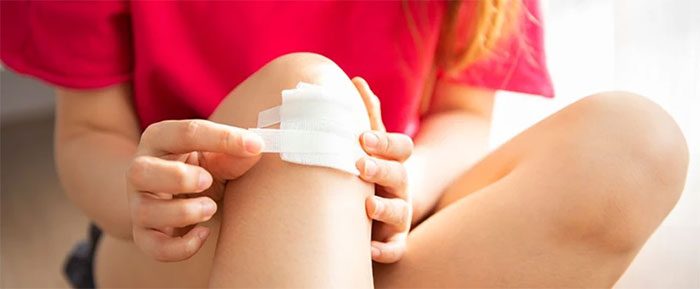A new product has been evaluated to have higher effectiveness compared to similar products on the market, while also utilizing materials from seaweed washed ashore, making it more environmentally friendly.
Tokyo University of Science (Japan) has successfully developed a wound healing gel made from seaweed and carbonated water.

Scientists have worked hard to make this new gel more resistant to deformation. (Image source: Norman Regional)
The new product is evaluated to be more effective than currently available products of the same type, and it uses materials sourced from seaweed washed ashore, thus being more environmentally friendly.
In recent years, “moist” therapy – a method of treating abrasions and other wounds by keeping them moist for rapid healing without leaving scars, has become popular compared to the “dry” method that forms scabs.
However, there are concerns that gels used in this method may swell when absorbing fluids, temporarily widening the wound.
The new gel from Tokyo University of Science is made from alginate – a component of seaweed, calcium carbonate, a component of shell, and carbonated water. Scientists have worked hard to make this new gel more resistant to deformation.
In experiments using artificial wounds on mice, the conventional gel caused the wounds to temporarily expand during the healing process, but with the new gel, the wounds maintained their original size.
According to scientists, this gel can be easily synthesized, allowing for potential on-site production in the operating room, depending on the size and condition of the wound. Additionally, this gel can also be mixed with medications such as antibiotics to enhance treatment effectiveness.



















































